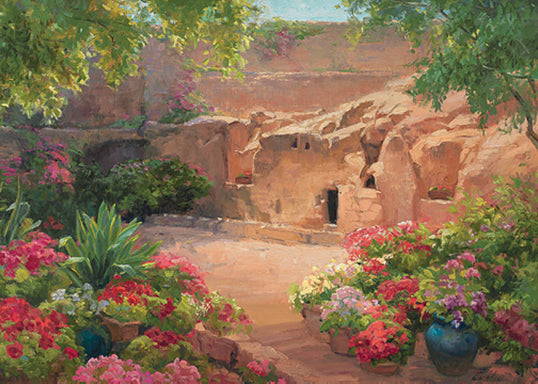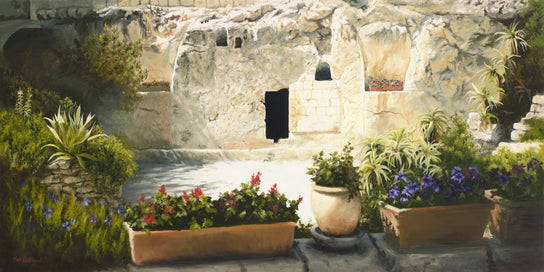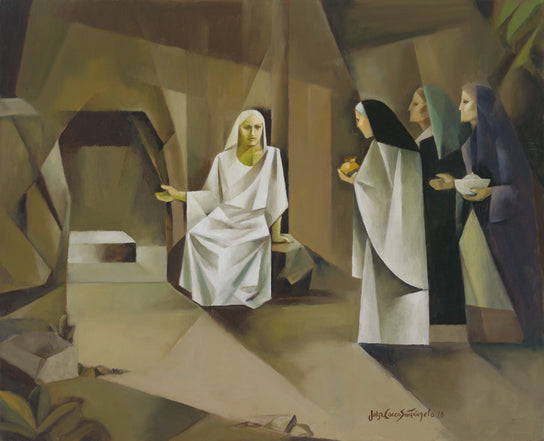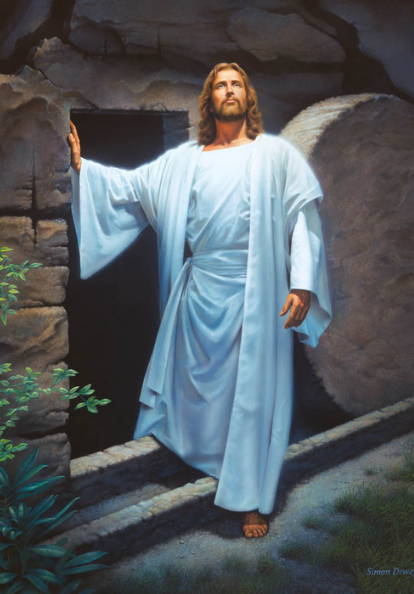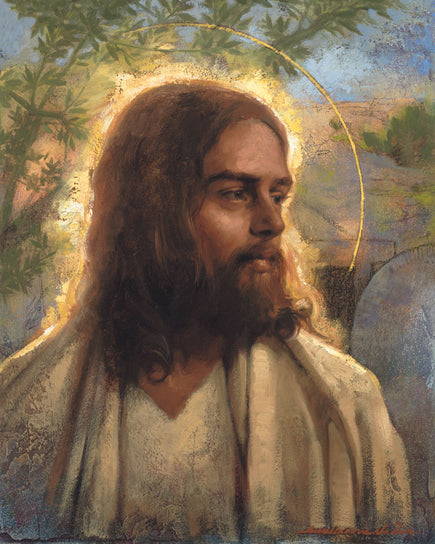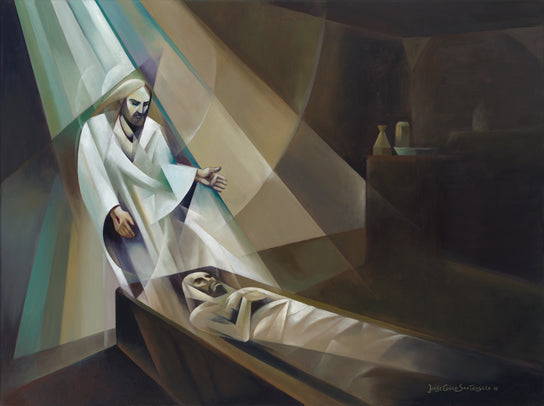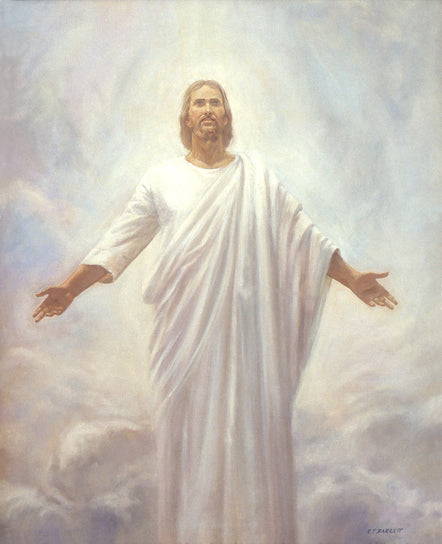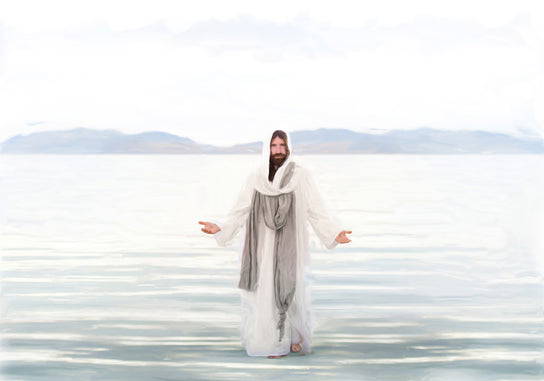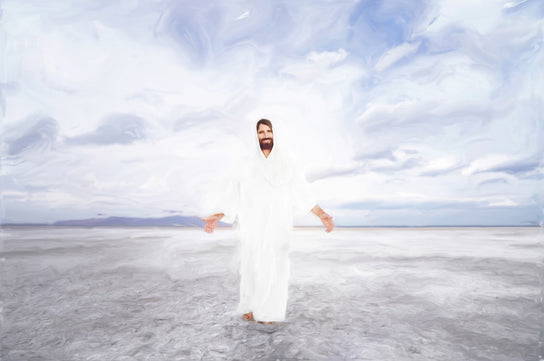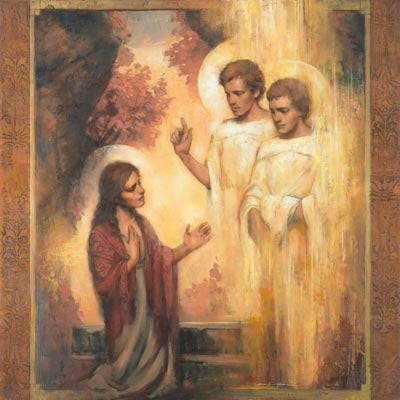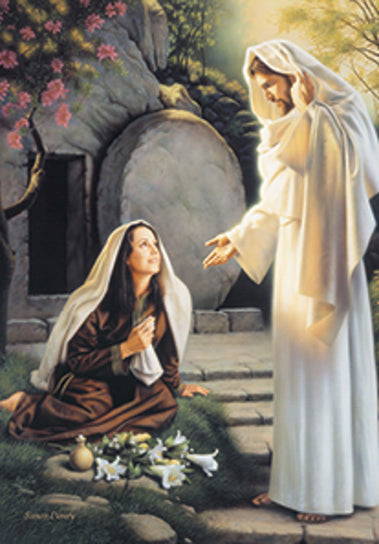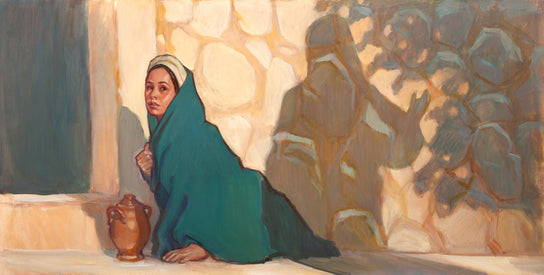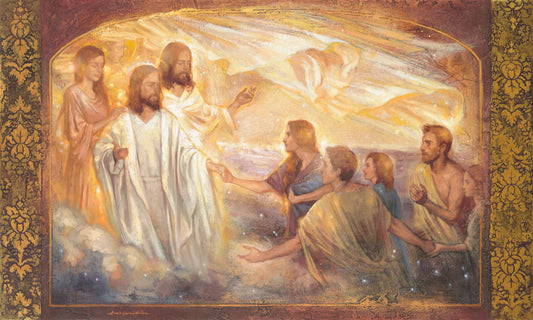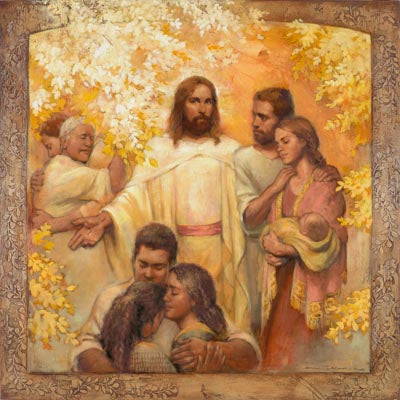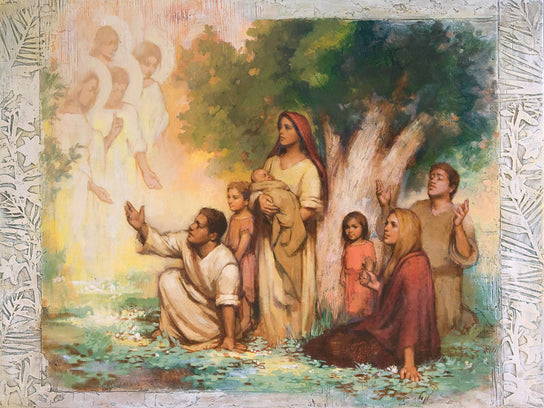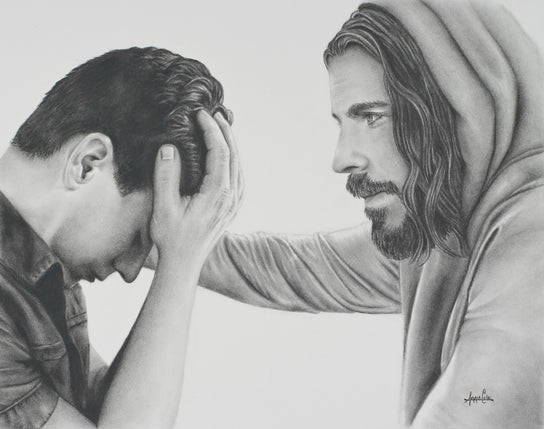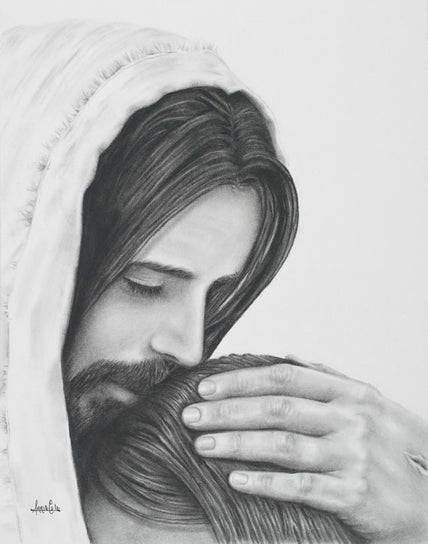Christ-Centered Easter Images
Dieter F. Uchtdorf reverently declared: “Easter is the day that changed everything.”
Easter marks the day that Jesus overcame not only sin but also death: the two barriers preventing the human family from ever returning to live with God. Because of Jesus Christ’s sacrifice and resurrection, we can hope for a better world. We are not doomed to live in a fallen world in a fallen state forever.
Because He lives, we can too in the here and now and in the life to come. We can reunite with our loved ones who have passed on. We can one day find healing for life's countless hurts. And, above all, we have the chance to once again feel the embrace of our Heavenly Father.
In a time when the world around us can seem so dark and confusing, the message of Easter is a breath of fresh air. It reminds us that Christ overcame what, to His followers, must have been one of the darkest, most confusing days in history. He showed us that, through Him, it is possible. As with everything, He showed us the way. As Elder Uchtdorf said, that morning truly changed everything.
To celebrate this sacred day, we are sharing some of our favorite Latter-day Saint Easter artwork. Each piece celebrates the miraculous scene of Jesus’ resurrection from different angles and perspectives in a way only artists could accomplish. They bring their own life experiences, artistic styles, and personal perspectives to the table, making for a lot of variety in our collection.
Jesus’ Tomb is Empty
These images capture a reverent and silent scene, sacred to all of Christianity. They invite us to pause and reflect on this special event in the Savior’s life and what it means for us. Much like the lowly stable where the Savior was born, the empty tomb from which He rose is a scene of immense celebration told in a soft and very unassuming way.
Both events in the Savior’s life highlight His character. He will literally move Heaven and Earth to save us. And yet, He may do it in such a way that we might not even notice. He is not in it for the showiness or the applause. He is in it for us. He did not come to Earth to make Himself great or popular but to draw our gaze toward God. As He told Heavenly Father: “Thy will be done, and the glory be thine forever” (Moses 4:2).
We love the colors in this painting. The flowers and other greenery surrounding Jesus’ empty tomb are stunning. They seem to breathe a natural sense of hope into the image.
Mark’s piece highlights the entryway into the tomb. The walls are bathed in white sunlight, giving the tomb a look of holiness and purity rather than sorrow and decay.
Robert takes a more panoramic approach to his picture of the tomb, capturing the layout of the surrounding tombs and greenery. It is a beautiful but ordinary setting, just as the Savior Himself lived a beautiful yet humble life.
In Jorge’s painting, he adds a few of those who had witnessed the empty tomb. The women who came to care for Christ’s body are greeted by an angel, telling them that the tomb is empty. We like the extra piece of narrative that he adds to this piece.
The Resurrected Christ
The artist chose many different scenes, some biblical and others interpretive, in painting the resurrected Christ. Each one has a slightly different focus, bringing together a variety of spiritual insights.
For example, in Annie’s painting, there is a subtle golden halo around Christ’s head. It indicates His power over death and His sacred role as the redeemer. And in Jorge Cocco’s piece, he illustrates the spirit of Jesus Christ reentering His body, which is a nod to what the restored gospel teaches us about Christ entering the spirit world to minister to those who had already passed on.
The amazing thing about true artwork is that no two are the same, especially with something as personal as religious art. What new insights do you see?
The first religious art piece published by Simon Dewey, this beautiful painting of Christ stepping out of the tomb still inspires many today. Christ’s calm expression as He looks toward Heaven, His body now whole and free of the torment it was put through, speaks a powerful message of hope.
Annie’s style for her Latter-day Saint art is inspired in part by the stucco classics of the renaissance period. And it is beautifully evident in this painting. This classic portrait, with Christ’s head encircled with a halo of gold, is timeless in its style and message.
Every piece of Jorge’s abstract, cubism-inspired artwork carries layers of symbolism and meaning. The lines and angles are purposefully placed to guide the eye to important parts of the painting. Here, this is a strong juxtaposition between Christ’s living soul and His deceased body that it is reentering, highlighting that there is so much more to each of God’s children than meets the eye.
Robert’s classic style captures the sacredness of every scene he paints. This piece of Christ ascending into the Heavens is full of softness and light. Regardless of the dark, messy, and painful experience that was Gethsemane and the crucifixion, Christ rises above it all. Through Him, we too can rise above our own Gethsemane and rise to higher ground.
This is an interesting piece as it combines two memorable moments from the New Testament: Jesus’ resurrection and Jesus walking on water. Perhaps it is a nod to Christ’s power over not only the physical elements but even death itself. As the scriptures teach us, with Christ all things are possible.
In a similar piece, Haley emphasizes Jesus' victory over death. His robe is pure white and He wears a smile, His arms outstretched to embrace us. The artwork seems to echo the scripture in the first chapter of Isaiah:
“Come now, and let us reason together, saith the Lord: though your sins be as scarlet, they shall be as white as snow; though they be red like crimson, they shall be as wool.”
Jesus and Mary
The biblical account of Mary Magdelene at the tomb carries a lot of import. It is a tender scene where we can see what the victory of Christ’s resurrection means on a more personal level. Though Jesus died and rose again to save all mankind, He took special care and time to greet and reassure Mary, His friend. He was aware of her sorrows as well as the service she had come to offer and it was to her that she spoke with Him before even appearing before His twelve disciples.
Likewise, He is aware of us. He cares for each of us and wants us to do as Mary did and seek Him out. Even, and especially when we feel lost, angry, and in despair. When we do, we will experience our own personal miracles.
The halo around Mary’s head and the mystical, incomplete forms of the angels make this a unique piece among other Latter-day Saint art that, traditionally, paints the scene with more historical or pretty details than common Christian symbols. We love her version of this biblical story.
The joyful relief on Mary’s face in Simon’s piece is almost contagious. This scene of absolute peace and calm reminds us of Jesus’ teaching in the Sermon on the Mount: “Blessed are they that mourn: for they shall be comforted.”
In Rose’s painting, we do not even see Christ outside of the shadow He casts on the tomb wall. Just Mary’s stunned expression. The focus is on her story. The pain she suffered, the dedicated service she offered to her Savior, and, at last, her experience as the first one to witness the resurrected Christ.
Because He Lives
This last set of Easter images illustrates what Easter means for us and our loved ones. It means that families can be together forever. It means that our life and progression as a child of God does not–not even a little–end at the grave. It means just what was promised in the book of Revelations:
“And God shall wipe away all tears from their eyes; and there shall be no more death, neither sorrow, nor crying, neither shall there be any more pain: for the former things are passed away. And he that sat upon the throne said, Behold, I make all things new.”
In the end, all wrongs will be made right. All pains will be healed. And all loss will be restored and then some. Because He lives, we can trust in the reality of God’s plan and we can trust that He has the best in mind for us, His children.
And in the meantime, Easter means that we can find strength during our current challenges. It means we can find purpose and identity when so many wander without it. Most of all, it means we, like the early apostles who first testified of Christ through their teachings and writings, have a lot to share with the world.
“Easter is the day that changed everything.” - Dieter F. Uchtdorf
Easter becomes more personal when we realize what Jesus’ resurrection means for us and our friends and families. This piece illustrates the beautiful truth that death is not the end, but only another beginning on our journey to becoming like our Heavenly Father.
Likewise, this painting conveys the emotion of a long-awaited reunion between family and friends. Christ is in the center, His arms open and His gaze inquiring, inviting us to follow the path that will one day lead us to more joy than we can even imagine.
The scriptures carry some beautiful promises about the Savior’s return. Not only will we live again, but, like Christ, our bodies will be whole from life’s tragic pains and illnesses: “The spirit and the body shall be reunited again in its perfect form; both limb and joint shall be restored to its proper frame” (Alma 11:43).
Because Christ lives, it means that not only will we one day receive what God has promised to His children, but we can find peace in the here-and-now. Jesus suffered for our sins as well as our pains. He knows exactly how it feels for us right here, right now. And while the full peace that we crave may not be immediate, we can trust that He is working in our lives.
Are there any Latter-day Saint Easter images that are meaningful to you that we missed? Let us know in the comments!
And if you liked this blog, you might also like:
7 Easter Paintings: Last Supper Paintings
Easter Art: Gethsemane Pictures & Crucifixion Paintings
We have lots of new art coming in - Don't miss out!




